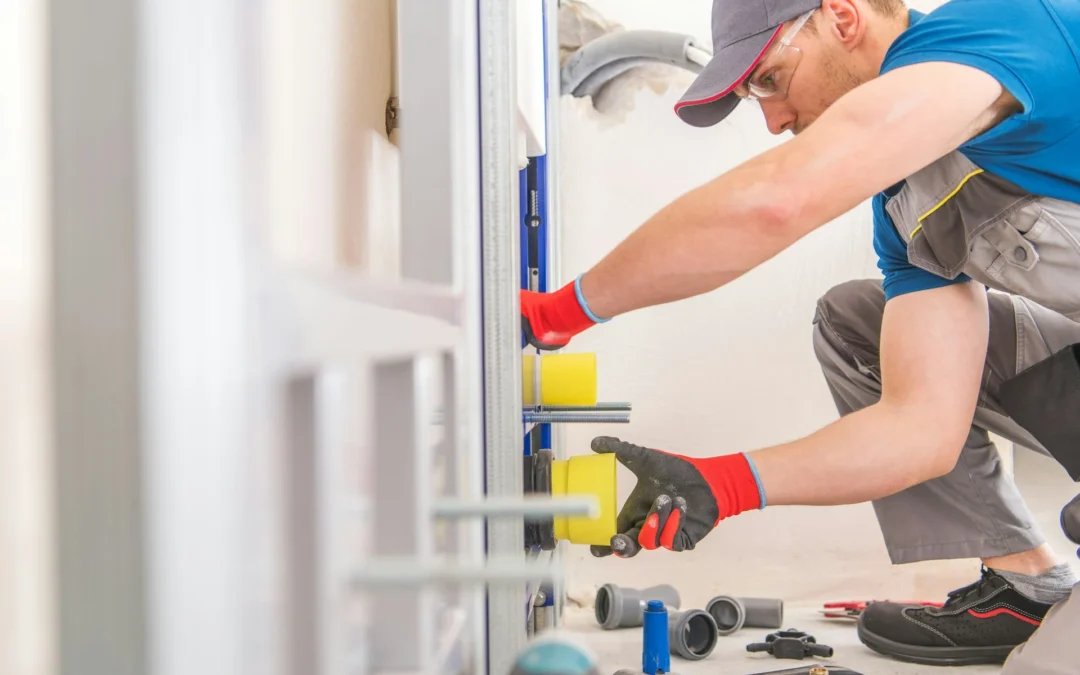The proper functioning and efficiency of sewage pumping stations are critical in wastewater management for residential, commercial, and industrial properties. Regular servicing of the sewage pump and associated equipment is essential to ensure optimal performance, prevent unexpected breakdowns, and prolong the system’s lifespan.
Sewer systems are subject to wear and tear due to the nature of the waste they handle, potentially resulting in issues such as clogging, corrosion, leakages, and decline in performance over time. Regular servicing of your sewage pump can help identify and address these issues early on, preventing more significant problems that could lead to equipment failure, costly repairs, and environmental hazards.
A well-maintained sewage pumping system will operate more efficiently, consume less energy, and provide reliable service for an extended period. This not only contributes to reduced environmental impact but also saves on energy and maintenance costs in the long run.
In this comprehensive guide, we will cover the key aspects of sewage pump servicing, including the inspection of pumps, control panels, valves, and pipework. We will also discuss the cleaning and lubrication procedures, which are essential for smoother operation and reduced wear on components.
By gaining a better understanding of these maintenance-related aspects, you can ensure that your sewage pumping system remains in top condition, providing you with reliable and efficient wastewater management for years to come.
Key Components of a Sewage Pump Servicing
1. Inspection: Pumps, Control Panels, Valves, and Pipework
A thorough inspection of the sewage pumping system’s components is essential in identifying possible issues.
Pumps should be checked for signs of wear, corrosion, or damage, and the control panels should be examined for any electrical or functional issues. Valves and pipework should be inspected for leaks, corrosion, or clogged lines which may impede the overall efficiency of the system. Regular inspection not only helps extend the lifespan of the equipment but also ensures optimal performance and energy efficiency.
2. Cleaning and Descaling: Preventing Clogs and Blockages
Sewage pumps and associated components are at risk of clogs and blockages due to the build-up of solid waste, sediments, and minerals over time. Regular cleaning of the pump and pipework can help prevent such issues while descaling can remove mineral deposits that may have formed along pipes and valves. Addressing these concerns regularly minimises the risk of system breakdowns, reducing maintenance costs and ensuring seamless operation.
3. Lubrication: Bearings and Mechanical Seal
Proper lubrication of bearings and mechanical seals is essential in reducing friction and wear on these critical moving parts. Follow the manufacturer’s guidelines for the recommended lubrication frequency and type, ensuring these components are adequately lubricated to guarantee smooth operation and prevent premature failure.
4. Pump Calibration and Performance Testing
Regular calibration and performance testing of the sewage pump ensures that it operates at optimum efficiency, preventing issues such as cavitation, overheating, and vibration. This step involves checking the pump’s flow rate, pressure, and power consumption against the manufacturer’s specifications, ensuring that the system is functioning as designed.
Best Practices for Sewage Pump Servicing
1. Schedule Regular Maintenance
Develop a maintenance schedule based on the manufacturer’s recommendations and adhere to this schedule to identify and address potential issues before they escalate into costly repairs or downtime. Ensure that experienced technicians carry out servicing, as improper procedures can result in further damage or reduced system efficiency.
2. Maintain Detailed Service Records
Maintaining comprehensive service records is vital for effective sewage pump servicing. Detailed logs provide valuable insights into the history and condition of the equipment, enabling technicians to identify recurring issues or patterns that can be addressed to prevent future problems.
3. Train Staff on Proper Use and Maintenance Procedures
Training personnel on the correct use and maintenance procedures for the sewage pumping system can help prevent operational errors that may adversely affect system performance. Educate staff members on factors such as proper waste disposal, avoiding materials that may clog or damage the system, and the importance of timely reporting of any issues for prompt resolution.
4. Invest in Quality Equipment and Spare Parts
Investing in quality sewage pumping equipment and using genuine spare parts during maintenance is essential for system longevity and optimal performance. Quality components are designed to meet specific performance standards, ensuring compatibility, improved efficiency, and reduced instances of breakdowns.
5. Emergency Response Plan
Despite regular servicing, unforeseen issues can still arise due to sudden equipment failure or environmental factors such as flooding or power outages. Establishing an emergency response plan will help to minimise potential damage and downtime in such situations. Ensure that key personnel are trained on how to respond to emergencies and have backup equipment and resources readily available.
Final Thoughts
Regular sewage pump servicing is integral to the efficient operation and longevity of your wastewater management system. By following the best practices outlined in this guide from A&C Pumps Ltd, you can improve the performance and reliability of your sewage pumping station.
Inspection, cleaning, lubrication, and performance testing are essential components that contribute to a well-functioning system. Implementing a regular maintenance schedule, maintaining detailed service records, training staff, investing in quality equipment, and having an emergency response plan further ensure that your sewage pumping system remains a reliable solution for wastewater management.
For a reliable, professional sewage pumping service, don’t hesitate to reach out to our team at A&C Pumps Ltd today!

